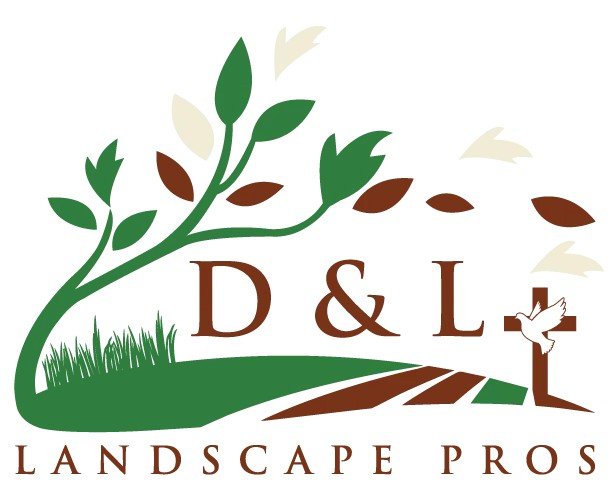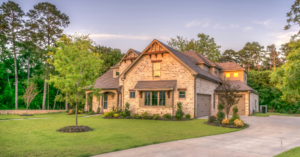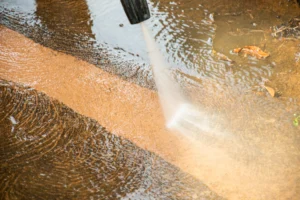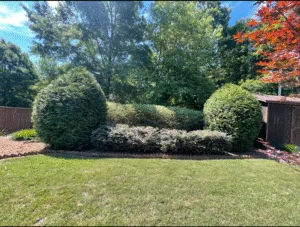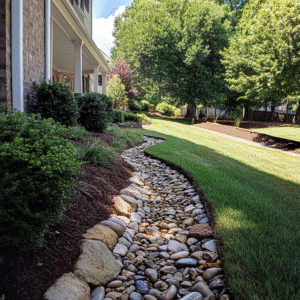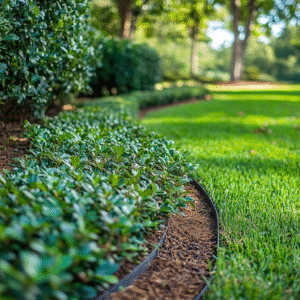 Keeping your landscape healthy and weed-free can feel like a never-ending battle, especially during the warmer months in the South Charlotte area. Whether you’re in Ballantyne, Matthews, Waxhaw, Indian Trail, or anywhere nearby, weeds seem to pop up overnight, competing with your plants for nutrients, water, and sunlight.
Keeping your landscape healthy and weed-free can feel like a never-ending battle, especially during the warmer months in the South Charlotte area. Whether you’re in Ballantyne, Matthews, Waxhaw, Indian Trail, or anywhere nearby, weeds seem to pop up overnight, competing with your plants for nutrients, water, and sunlight.
One of the most effective and natural ways to keep weeds under control is with mulch. But not all mulch is created equal — and choosing the right one for your yard can make a big difference in weed prevention, soil health, and curb appeal.
At D & L Landscape Pros, we help homeowners in South Charlotte choose the best mulch for their specific needs. In this guide, we’ll break down the best mulch types for weed control, their pros and cons, and tips for getting the most out of your mulch investment.
Why Mulch Works for Weed Control
Mulch is more than just a decorative layer for your landscape beds. When applied properly, mulch forms a barrier that:
- Blocks sunlight from reaching weed seeds, preventing germination.
- Keeps soil moist, which benefits your plants but discourages tough weeds.
- Reduces soil temperature fluctuations, making it harder for weeds to thrive.
- Creates a physical barrier that makes it harder for weed roots to establish.
However, mulch only works if it’s applied at the right depth (usually 2–4 inches) and maintained over time.
Best Types of Mulch for Weed Control in South Charlotte
When it comes to weed prevention, you have two main mulch categories to choose from: organic (natural) mulches and inorganic mulches. Each has its strengths, but for most residential landscapes in areas like SouthPark, Marvin, and Weddington, organic mulch is the go-to choice.
1. Shredded Hardwood Mulch
- Best for: Flower beds, tree rings, and general landscaping.
- Why it works: Shredded hardwood mulch creates a dense mat that is excellent at blocking sunlight and suppressing weed growth.
- Pros:
- Natural appearance that blends well with most landscapes.
- Slowly decomposes, adding nutrients to the soil.
- Readily available in South Charlotte.
- Cons:
- Needs replenishing every 1–2 years as it breaks down.
- Can attract insects if applied too close to a home’s foundation.
Tip from D & L Landscape Pros: Choose double- or triple-shredded hardwood mulch for better compaction and weed prevention.
2. Pine Bark Nuggets
- Best for: Larger planting beds and around shrubs.
- Why it works: Pine bark nuggets form a thick, chunky layer that blocks sunlight effectively.
- Pros:
- Long-lasting compared to finer mulches.
- Great for sloped areas because it allows water to pass through easily.
- Cons:
- Larger gaps between nuggets can allow some weeds to slip through.
- Can float away during heavy rainstorms.
Pro Tip: Pine bark nuggets are popular in neighborhoods like Waxhaw and Marvin, where homeowners want a rustic, natural look.
3. Pine Straw
- Best for: Large garden beds, pathways, and around trees.
- Why it works: Pine straw forms a thick, airy layer that smothers weeds while allowing excellent airflow to plant roots.
- Pros:
- Lightweight and easy to spread.
- Acidic nature benefits plants like azaleas and camellias.
- Affordable and widely available in North Carolina.
- Cons:
- Needs replenishing more frequently (every 6–12 months).
- Doesn’t add as many nutrients to the soil compared to wood mulch.
Local Note: Pine straw is especially common in South Charlotte because it’s budget-friendly and matches many Southern-style landscapes.
4. Cedar Mulch
- Best for: Areas where insect control is important.
- Why it works: Cedar mulch contains natural oils that repel certain pests while still providing a dense weed-blocking layer.
- Pros:
- Long-lasting compared to other organic mulches.
- Pleasant aroma.
- Naturally resistant to mold and rot.
- Cons:
- More expensive than hardwood mulch.
- Color can fade over time.
5. Rubber Mulch (Inorganic)
- Best for: Play areas, around swing sets, and low-maintenance beds.
- Why it works: Rubber mulch blocks light extremely well and doesn’t break down, making it very effective at preventing weed growth.
- Pros:
- Extremely durable — lasts for years.
- Won’t attract insects.
- Excellent for high-traffic areas.
- Cons:
- Doesn’t improve soil quality.
- Can be more expensive upfront.
- Holds heat, which can stress plants in hot summers.
Pro Tip: We generally recommend rubber mulch for specific areas, not for entire garden beds, since it doesn’t feed the soil.
6. Landscape Fabric + Mulch Combo
- Best for: High-maintenance beds where long-term weed suppression is the priority.
- Why it works: Landscape fabric under mulch creates a double barrier that weeds struggle to penetrate.
- Pros:
- Reduces the need for frequent weeding.
- Works with both organic and inorganic mulch types.
- Cons:
- Can restrict water and nutrient flow to plant roots if installed incorrectly.
- Requires careful installation.
Local Tip: In South Charlotte’s clay-heavy soil, pairing landscape fabric with mulch can be especially effective for stubborn weeds.
Tips for Maximizing Weed Control with Mulch
Regardless of which mulch you choose, proper installation and maintenance are key to keeping weeds at bay.
- Remove existing weeds first. If you spread mulch over live weeds, they’ll likely grow back.
- Use the right depth. Too thin and weeds will poke through; too thick and you risk suffocating plant roots.
- Replenish annually. Organic mulch breaks down over time, so top it up each year.
- Edge your beds. Well-defined edges in places like your Ballantyne or Matthews garden beds help keep mulch in place.
- Don’t pile against tree trunks. Mulch volcanoes can cause rot — keep mulch a few inches away from bark.
Which Mulch Do We Recommend for South Charlotte?
For most of our clients in South Charlotte neighborhoods — from Waxhaw to Weddington to Indian Trail — shredded hardwood mulch or pine straw are the top picks for weed control. They balance effectiveness, appearance, and soil health while being widely available locally.
However, the “best” mulch can vary depending on your landscaping style, plant types, and maintenance preferences. For example:
- If you have acid-loving plants, pine straw is a smart choice.
- If you want something that lasts longer, cedar mulch might be worth the investment.
- If you need a low-maintenance, long-term solution, a landscape fabric + mulch combo is ideal.
Let D & L Landscape Pros Handle the Hard Work
Applying mulch may seem simple, but doing it properly — and choosing the right type — can make all the difference in keeping weeds out of your landscape. At D & L Landscape Pros, we specialize in mulch installation and maintenance for homeowners across South Charlotte, Matthews, Waxhaw, Ballantyne, Indian Trail, Marvin, and beyond.
We’ll:
- Recommend the best mulch type for your yard.
- Professionally install mulch to the correct depth.
- Ensure long-lasting weed control and beautiful curb appeal.
Ready to Stop Fighting Weeds the Hard Way?
Don’t waste weekends pulling weeds and hauling heavy bags of mulch. Let D & L Landscape Pros give your South Charlotte landscape a fresh, weed-free start.
Call us today to schedule your mulch installation and enjoy a beautiful, low-maintenance yard all season long.
